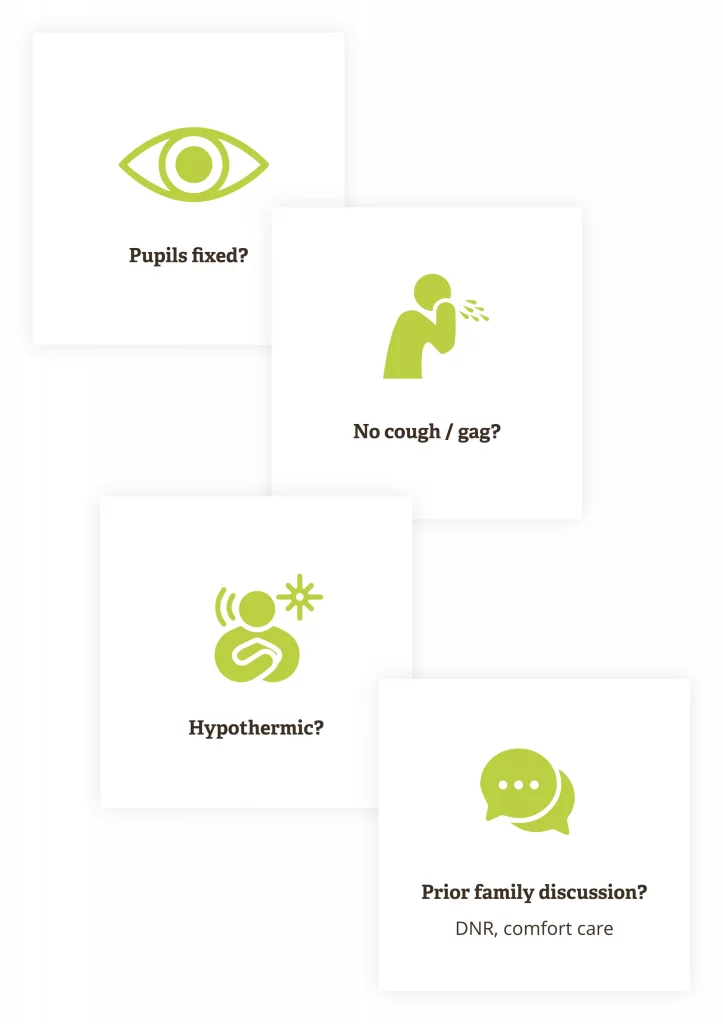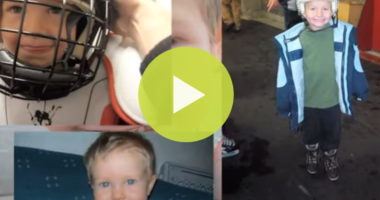
We share your goals: we want to save lives, and we want to help families find comfort and meaning in a time of loss. The guidelines and procedures below provide a careful, respectful, step-by-step protocol for preserving your patient’s opportunity to donate.
Questions? Contact our Hospital Development team
Preserving Your Patient’s Opportunity to Donate
Donation can give hope to families—and provide assurance that a patient’s donation decision is honored.
Donation also gives you and your team the opportunity to save some of the 13 people who die every day waiting for a transplant. Without you, that opportunity can easily be lost. Saving a life through donation isn’t possible without an invested hospital care team.
Keep these things in mind to preserve your patient’s opportunity to donate:
- What is good for the patient is good for the donor. Doing everything you can to help your patient will also help preserve their opportunity to donate.
- Don’t make assumptions about who can be a donor. Many situations that might have ruled out donation in the past no longer apply. Let us help determine donor suitability.
Critical Pathway for Donation After Brain Death
This critical pathway provides a detailed, step-by-step description of the donation process after brain death.
- Patient meets clinical triggers for donation. (Patient has been ventilated, suffered a devastating illness or injury, and lost three or more brainstem reflexes—i.e., pupils fixed, no cough, no gag, no response to painful stimuli, no spontaneous respirations.)
- Hospital staff calls LifeCenter Northwest at 888-543-3287 within one hour of clinical triggers being met.
- A LifeCenter Northwest coordinator determines medical suitability for donation.
- If patient is determined to be a suitable candidate for donation, the physician discusses evidence of brain death with the family.
- The LifeCenter Northwest coordinator works with the patient care team on a plan for talking to the family about donation.
- The LifeCenter Northwest coordinator facilitates the donation conversation with the family.
- If the patient is Donor Designated (i.e., registered as an organ donor), this serves as authorization and the family is provided with full disclosure. If the patient is not Donor Designated, authorization is obtained.
- Patient is maintained on a ventilator in the ICU for donor management and organ allocation.
- Family is provided time to say goodbye and participate in memory-making activities.
- Patient is transferred to the OR for organ recovery.
Critical Pathway for Donation After Circulatory Death
This critical pathway provides a detailed, step-by-step description of the donation process after circulatory death.
- Patient meets clinical triggers for donation. (Patient has been ventilated, suffered a devastating illness or injury, and lost three or more brainstem reflexes—i.e., pupils fixed, no cough, no gag, no response to painful stimuli, no spontaneous respirations.)
- Hospital staff calls LifeCenter Northwest at 888-543-3287 within one hour of clinical triggers being met.
- A LifeCenter Northwest coordinator begins donor assessment.
- If a neurological exam is not consistent with brain death, physician and family have a discussion about grave prognosis and withdrawal of life support as an appropriate option.
- If patient is determined to be a suitable candidate for donation, the LifeCenter Northwest coordinator partners with the hospital care team on a plan for talking to the family about donation.
- The LifeCenter Northwest coordinator facilitates the donation conversation with the family.
- Patient is maintained during further evaluation as a potential donor after circulatory death. LifeCenter Northwest will collect patient medical information.
- The patient is transported to the location of withdrawal (typically near the OR).
- Hospital staff facilitates preparation for withdrawal of support per hospital policy.
- Support is withdrawn and comfort medications are administered per hospital policy by the hospital team. Either a hospital MD or RN must be present to pronounce death, as determined by hospital policy.
- LifeCenter Northwest will continue to track vital signs. Family can be present for withdrawal of life support.
- If patient does not arrest. Notify attending physician. Transfer patient back to patient’s ICU room.
- If patient arrests. Family says goodbye.
- Patient declared dead by circulatory criteria by non-transplant-related MD or RN (according to hospital policy). After a five-minute observation period, organ recovery begins.
Planning to Talk About Donation With Families
We know that when families understand the good that can come from donation, they rarely say no. But donation information must be delivered in a respectful, time-sensitive manner—and with a unified approach and support from the care team and LifeCenter Northwest. We all owe that to the grieving family and to the thousands of people currently waiting for an organ, eye, or tissue transplant.
That’s why it’s so important to call LifeCenter Northwest (888-543-3287) before beginning the donation conversation with the family. You are knowledgeable about your hospital policy and your patient’s family and medical information, and we are experienced and confident with the donation process and working with donor families.
Together, we can work to help your patient’s family find comfort in a difficult time.
Who should be involved in the planning:
- the hospital care team:
- physician leading the family conferences and writing orders for the patient
- bedside nurse
- hospital staff specific to family support (including social work, spiritual care, palliative care)
- anyone who has interacted with the family and has knowledge to share
- the LifeCenter Northwest team:
- family support specialist
- organ recovery coordinator
- hospital development program manager
What should be determined:
- What is the family’s understanding of the prognosis/diagnosis?
- Who are the key members of the family making decisions?
- Has there been any previous mention or discussion of donation? If so, was it positive or negative?
- Is the patient a registered donor? (E.g., a majority of licensed drivers in the areas that we serve have already registered their decision to be a donor.)
- Are there any complex family dynamics?
- How long has the patient/family been in the hospital?
- What religious/cultural considerations may be important to support the family?
- Does the age and injury of the patient have any effect on the conversation?
- Who will introduce the donation coordinators to the family?
- What is good language for introducing the donor family advocate or coordinator?
When and where planning should occur:
Once you call LifeCenter Northwest, planning for the family conversation should be ongoing. Planning is most critical just before introducing the donation coordinators to the family. To be respectful, planning should take place away from the family, in a private space on the unit or near the nurse’s station.
Clinical Triggers for Organ Donation
Call LifeCenter Northwest at 888-543-3287 before any family discussion of DNR, comfort care, or ventilator withdrawal, if:
- Your patient is ventilated
- Your patient has lost three or more brainstem reflexes
- There is anticipated discussion surrounding end-of-life


Clinical Triggers for Tissue or Cornea Donation
Call LifeCenter Northwest at 888-543-3287
to report all cardiac deaths within 60 minutes—even if the patient was ruled out for organ donation.
Follow S.E.E. for care of a cornea donor:
- Saline flush of the eyes
- Eyelids shut
- Elevate head
The Donation Discussion
The discussion surrounding organ and tissue donation is part of the continuum of care for a family walking through the process of losing their loved one. At LifeCenter Northwest, our focus is to make this discussion as supportive as possible for the family and ensure the patient’s wishes are honored. This discussion is a common pain point in the process, as there are many factors to take into account, including timing, logistics, family dynamics, ethical considerations and donor registry status.
Content Management Systems and The Joint Commission both require that this conversation be initiated by the donation agency and recommend that the care team and agency collaborate together to determine the best possible plan for each patient and family. When our teams work together to plan this conversation in advance, we know it’s better for the family, and it significantly impacts the donation authorization rate for your hospital.
What can you do?
Administrators: Take an active interest in your hospital’s performance, including the Collaborative Request Rate. This is the measure of how often donation conversations are happening with your families in the most effective way possible, and something you may be asked about during site visits from CMS, TJC and the Department of Health.
Managers: Work with your designated Hospital Development Representative to provide education regarding the donation discussion to your department.
Bedside Staff: Proactively consider how you might talk about next steps with a family, without bringing up donation. We have great suggestions to start with here.
Support Staff: When there is a death, or if you are aware of LifeCenter Northwest following a potential organ donor, help us remind those involved that the donation discussion needs to be planned with the donation agency prior to any mention to the family.






